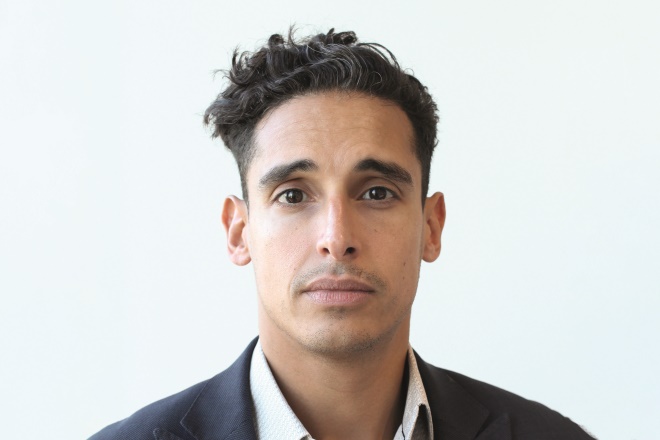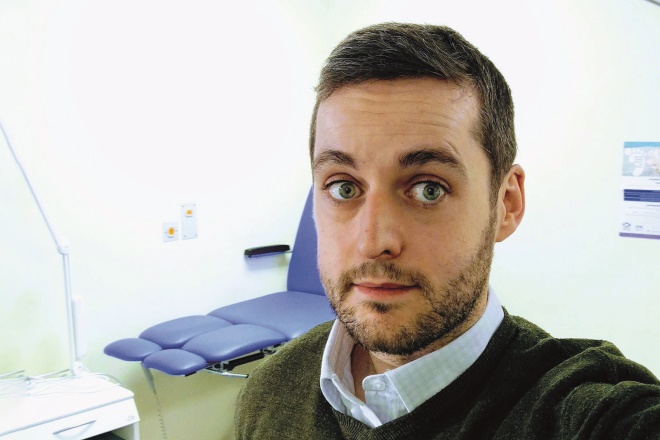
Shutterstock.com
In 2018, pharmacists and pharmacy technicians will join doctors, nurses and midwives in being expected to undergo the revalidation process, demonstrating their continuing competence and fitness to practise.
Revalidation was first proposed by the government for all registered healthcare professionals ten years ago, in response to the inquiry into Harold Shipman, a former GP who is believed to have killed around 250 of his patients[1]
. Doctors were the first to revalidate in 2012, followed by nurses and midwives in 2016.
The format, signed off by the General Pharmaceutical Council (GPhC) on 7 December 2017 (Pharmaceutical Journal online, 8 December 2017 ), will require pharmacy professionals to submit various pieces of work, and make declarations to illustrate that they are keeping their skills up to date.
“The Council’s overall view is that this is a beneficial process for everybody, but it will be less so if it is difficult or counterintuitive,” says Nigel Clarke, chair of the GPhC. As a result, the GPhC’s revalidation team has spent a lot of time talking to stakeholder organisations and registrants, and that engagement will continue, he adds.
Requirements and deadlines
Currently, pharmacy professionals have to make declarations every year that they meet the regulator’s standards and remain fit to practise. They also have to record nine continuing professional development (CPD) activities and provide those records to the GPhC, if requested for review purposes.
From autumn 2018, the number of CPD activities that must be recorded each year will be pared down from nine to four. But from 2019, registrants will have to complete two additional activities — a peer discussion and a reflective account of their practice, stating how they have met one or more of the GPhC’s new standards for pharmacy professionals, which came into force in May 2017.
For each record, pharmacy professionals will have to explain how the activity that they have undertaken has benefited people using pharmacy services, to make sure that improving the care people receive is at the heart of the process.
The GPhC’s new online portal for recording CPD and renewing registration, which is designed to work on desktops, laptops and mobile devices, will go live for all registrants in March 2018. Those who have a registration expiry date of 31 December 2018 (around 54% of registrants), will be the first to use the portal to submit their four CPD entries for 2018. Since registration is renewed two months in advance, this first cohort of registrants must submit their entries between 1 September, when the renewal process opens, and 31 October.
The process will then be rolled out to those who joined the register on either the 1st or 15th of a month, at their next renewal date. This means that revalidation will be fully implemented by September 2020.
The GPhC says all registrants will receive tailored information and guidance from February 2018 onwards, to explain what they will need to do, and when.
Every year, at least 1 in 40 registrants (2.5%) will be selected to have their records reviewed. Another 300–400 people will be specifically targeted because they have previously displayed characteristics suggesting that they are at risk of falling into remediation. These include having been through remediation previously, having late or incomplete submissions, and trying to remove themselves from the register or lapse their registration to avoid revalidating.

Source: Courtesy, Os Ammar
Os Ammar, head of continuing fitness to practise at the General Pharmaceutical Council, recommends that groups of professionals consider getting together for a reciprocal group peer discussion
The GPhC will also start monitoring whether registrants who were told to undertake learning and development as part of fitness-to-practise processes have reflected on the learning they were asked to do, explains Os Ammar, head of continuing fitness to practise at the GPhC.
Information and guidance
The consultation on the original proposals, published in April 2017 (Pharmaceutical Journal online, 24 April 2017) generated 1,858 responses from pharmacy professionals and organisations, and more than 2,400 individuals participated in over 40 consultation events. The GPhC says the feedback was “largely positive”, but some concerns were raised about how the framework will be implemented and what support registrants will receive.
The GPhC therefore agreed to strengthen some of the requirements that were expressed as guidance in the consultation — concerning the selection of peers and conflict of interest — and to produce new guidance and supporting information to further explain the new process. Written guidance should be available from spring 2018, and will be followed up with more detailed information in other formats, such as video.
As well as producing guidance, the regulator will publish examples of the types of entries that it does and does not want to see.
Ammar explains that those responding to the consultation asked the GPhC for more examples of what good entries would look like. “But they also specifically asked for examples of what they shouldn’t do, so that they could avoid those pitfalls,” he adds.
Registrants also specifically asked for examples of what they shouldn’t do, so that they could avoid those pitfalls
Selecting a peer
As part of the revalidation process, all pharmacy professionals will need to select a peer with whom to discuss their practice. The consultation and pilots highlighted concerns about what would be considered a conflict of interest when choosing a peer. For example, would it be appropriate for a peer to be a friend or relative, to have a shared commercial interest, or to be allocated by an employer?
“What we are planning to do is to make it clear in the declarations [made at the point of registration renewal] that other people should not be selecting peers, but rather you should be the one selecting your peer and thinking about conflict of interest or perceived conflict of interest,” says Ammar.
“It may not be inappropriate to have somebody who is married to your sister or who is in a business relationship with you, but the perception of it might be difficult to justify to somebody else,” explains Ammar. “I think that is a test that I would put out to registrants: if you heard that someone else was doing this, what would you think?”
Clarke adds that the peer discussion is not the same as an appraisal. “We had a long discussion at council about whether a peer can be part of your line management and, as a general principle, the burden of proof would be in favour of showing why that would be a good thing.”

Source: GPhC
Nigel Clarke, chair of the General Pharmaceutical Council, emphasises that the regulator will continue to engage with registrants during the implementation phase of revalidation to ensure they feel “comfortable” going about it
He explains: “The pharmacist or pharmacy technician may think that it is. It’s their choice, because they are the person choosing, but we wouldn’t want them to feel that they are having to make that choice because of work pressure.”
The GPhC wants registrants to think creatively when selecting peers, says Ammar, acknowledging that, increasingly, health and care work will be delivered in multidisciplinary environments. “We think that multidisciplinary peer discussions will be very beneficial to improve patient outcomes as people learn from each other rather than necessarily staying within the two professions of pharmacist and pharmacy technician.”
We think that multidisciplinary peer discussions will be very beneficial to improve patient outcomes as people learn from each other rather than necessarily staying within the two professions of pharmacist and pharmacy technician
However, there is no reason why two pharmacists cannot act as each other’s peers. “We have no evidence to show that that doesn’t produce an effective outcome,” Ammar points out, but with a proviso. “They might want to refresh that relationship every so often just so that they don’t end up in a kind of closed culture of just the two of them.”
Ammar recommends that groups of professionals consider getting together for a reciprocal group peer discussion — a model used by the General Osteopathic Council. At each meeting, the person who is the subject of the peer discussion will change, they will present on their practice and receive feedback from the group.
“It’s something that we’ve seen some groups that are already established choosing to do,” says Ammar. “All we ask is that for the purpose of our quality assurance check, we only get the contact details of one individual as a peer, rather than 20.”
Isolated workers
The GPhC emphasises that revalidation has been designed so that it works for the diverse range of pharmacy professionals who will need to use it, including those who are isolated geographically or working in a specialist area, such as the armed forces or in prisons (see Panel).
“The system supports people interacting online, for example, or by Skype, and also we have made sure the requirements for the selection of the peer are flexible enough to mean that somebody can choose a peer in their local area,” Ammar says. The majority of registrants already have a network in place that would be able to provide a peer, perhaps through a professional body, education and training organisation, or their employment, although they may not have recognised that, he adds.
While the GPhC will not be dictating the topics that CPD activities must cover, it will be advising those with annotations on the register — which for the moment is only prescribers — that they must demonstrate annually that they are keeping these skills up to date.
Prescribers do not necessarily need to have prescribed or completed a CPD module on the topic, Ammar explains. It could mean working alongside a prescriber, undertaking a formal learning and development programme or choosing a peer who is a prescriber.
Panel: Finding a peer when working in a geographically remote location
John Bentley, a community pharmacist in the outpatient pharmacy of the only hospital on the island of Bermuda, says that he does not believe being based in Bermuda will cause him too many problems, since he works alongside pharmacists who could act as peers. “Although none of them are UK-trained or registered, it looks like it’s quite open as to who can be a peer,” he says. “I think my job also provides opportunities to complete the reflective account.”

Source: Courtesy, John Bentley
John Bentley, a community pharmacist in the outpatient pharmacy of the only hospital on the island of Bermuda, says that he does not believe his isolated location will be problematic in terms of finding a peer for the peer discussion
Anthony McDavitt, an advanced clinical pharmacist and prescribing adviser who works at general practices and Gilbert Bain Hospital in the remote Shetlands Islands, agrees that finding peers will not be difficult: “We have a close group of pharmacy professionals who are very familiar with one another and their respective places of work, who regularly take part in group learning, which will help us identify peers for the peer discussion element of revalidation.”

Source: Courtesy, Anthony McDavitt
Anthony McDavitt, an advanced clinical pharmacist and prescribing adviser in the Shetland Islands, says that he regularly participates in group learning with other pharmacy professionals, which will help him to identify a peer
Assessment criteria and feedback
When a registrant is selected for review, their submissions will be read by a pair of reviewers — one from the profession and a lay member of the community. One of the reviewers will then draft the review report, which will be quality assured internally before being sent to the registrant to ensure that feedback provided is consistent.
The GPhC will use two sets of criteria to make decisions and provide feedback — core criteria and feedback criteria. The core criteria include submitting the right number of records correctly and on time, and not compromising patient confidentiality.
If the core criteria are not met, the registrant will automatically be placed into the remedial measures process. Essentially, they will have to make another attempt, Ammar explains. They will be told what wasn’t right and directed towards organisations that can support them.
For example, a registrant that provided patient identifiable information would be asked to remove it. “We are also then very likely to advise them to do a piece of CPD around patient confidentiality in the following year because they have clearly not understood a very important part of their responsibilities,” Ammar says.
The feedback criteria are more about explaining the learning — why an approach was taken, the mechanisms followed and the relevance of that learning to practice and patients. These criteria will be used to offer developmental feedback, and the GPhC may decide to review that registrant’s records again at their next renewal to see if the feedback has been acted on.
Selection of a peer will fall into the feedback criteria. When the registrant submits their documents, they will be expected to explain why they chose their peer, and if the reviewers consider that the peer was inappropriate, this will be stated in the feedback report. “It would not be something that would mean that somebody would have to do their peer discussion again that year, but we would expect to see that they make a different decision in the future,” Ammar explains.
Choosing an inappropriate peer would not mean somebody having to do their peer discussion again that year, but we would expect to see that they make a different decision in the future
If it is apparent that information has been plagiarised, for example by being copied and pasted from a medicines information leaflet, or if someone repeatedly releases patient-identifiable information, this would lead to a formal investigation under the GPhC’s fitness-to-practise processes. But that would be exceptionally rare, Ammar says. Of the 54,000 CPD reviews done in the previous six years, only three cases were referred to the fitness-to-practise processes, and these were largely because the number of times people had requested extensions had raised potential health issues that the GPhC decided to investigate.
Resources to support revalidation
The time it will take to complete entries can vary markedly, but pilots suggest each will take between half an hour to an hour. However, Ammar emphasises: “The bulk of the work is not about the filling in, it’s in doing the activity and then reflecting upon it in order to write it up.”
Ultimately, registrants will be able to transport work from other platforms into the GPhC’s portal. The GPhC is working with other organisations, such as the Royal Pharmaceutical Society (RPS), national training organisations, and some private providers used by employers, to make this feasible. The aspiration is for this to be possible by the time the first tranche of registrants make their revalidation submissions in the autumn of 2018.
“Hopefully we can do away with dual recording, because we know that is something that discourages registrants from engaging in the reflective process,” Ammar says.
Stakeholders, such as postgraduate education centres and the RPS, have been discussing for some time what revalidation is likely to mean for the materials they produce, but have been waiting for the framework to be signed off before getting started.
Matthew Shaw, director of the Centre for Pharmacy Postgraduate Education (CPPE) in Manchester, says the initial focus will be on ensuring that existing materials clearly link into revalidation. “If you look at a disease like chronic obstructive pulmonary disease, then the disease and what you need to know is no different just because revalidation has come in. The thing that will be different is the way that pharmacists and pharmacy technicians think about it and think about why they have chosen to learn it,” he says.

Source: Courtesy, Matthew Shaw
Matthew Shaw, director of the Centre for Pharmacy Postgraduate Education in Manchester, says the initial focus will be on ensuring that existing materials clearly link into revalidation
“Rather than just going to [an event] because you’re free that evening, it’s more about asking yourself why you need to go, how that is going to improve the way that you engage with the people using your services and what you will be able to demonstrate at the end of it. I think that’s where the changes that we make will come into it.”
Rather than just going to [an event] because you’re free that evening, it’s more about asking why you need to go, how that is going to improve the way that you engage with the people using your services and what you will be able to demonstrate at the end of it
Shaw adds that the CPPE will also be helping registrants to engage with peer review and for the reflective piece “not just to write something that passes, but really links what the standards are with the way that they choose to work”.
The RPS has made supporting members through revalidation a corporate objective for 2018. It set up a steering group in December 2017 to direct this work and has recruited a programme manager to lead it.
Key areas of work for the RPS will be adapting existing content, ensuring content completed on the RPS’s web platform can be transported to the GPhC’s portal and providing bespoke professional development support for members.
Christopher John, RPS head of workforce development, says that the RPS’s web platform will store a portfolio of work that could eventually be used for submission to its faculty, a professional development and recognition programme, creating one place to make entries that count for many functions.
“It’s not just about minimum standards,” he says. “It’s a repository where [pharmacists] can have confidence it’s going to be there over their professional lifetime. That is not the case with the GPhC’s platform — its records will be erased after a year or 18 months. The RPS portal is really about career-long professional development.”
The RPS is also developing guidance and other support tools. In the weeks following the launch of the GPhC’s portal, the RPS will provide members with a new mobile- and tablet-based app that will meet the immediate needs of revalidation by allowing recording of planned and unplanned CPD. The app will use the latest learning content published by The Pharmaceutical Journal.
The RPS will provide a portable, convenient solution to recording learning and development through the app, which will complement and add to the lifelong portfolio
Catherine Duggan, RPS director of professional development and support, says that the RPS is conscious that many registrants will feel uncertain about the changes to CPD. “The RPS will provide a portable, convenient solution to recording learning and development through the app, which will complement and add to the lifelong portfolio,” she explains. “It’s essential that we develop both solutions so that we can track our development easily, while describing the impact of development and learning on our practice, across all sectors and stages of our professional, and career, development,” she adds.

Source: Simon Wright Photography / The Pharmaceutical Journal
Catherine Duggan, Royal Pharmaceutical Society director of professional development and support, says that the RPS is conscious that many registrants will feel uncertain about the changes to continuing professional development
Employers say they will also be adapting their training and providing support for pharmacy professionals undergoing revalidation now the framework has been agreed.
A spokesman for Celesio UK, parent company of LloydsPharmacy, explains that LloydsPharmacy is preparing for the introduction of revalidation by working closely with the pharmacy regulator and professional leadership bodies to define what information and support its pharmacy professionals will need. He adds: “We are generally supportive of the framework and direction of travel, and we’re committed to equipping our colleagues with the best available resources.”
Richard Bradley, pharmacy director at Boots UK, says he believes that all pharmacy professionals will benefit from the new focus that revalidation will bring on demonstrating improvements that have benefited users of pharmacy services.
“Our training interventions will reflect the new revalidation requirements and guidance, once published, and will help develop our pharmacy professionals in all the settings in which they operate,” he adds.
Our training interventions will reflect the new revalidation requirements and guidance, once published, and will help develop our pharmacy professionals in all the settings in which they operate
At pharmacy multiple Well, Janice Perkins, pharmacy superintendent, says that the company is aware that revalidation is a substantial change. “We’re working with the GPhC to provide a package of support to our pharmacists and technicians. A number of our colleagues were involved in the pilot and we’ve actively encouraged attendance at the GPhC workshops,” she says.

Source: Courtesy, Janice Perkins
Janice Perkins, pharmacy superintendent at Well, says the company is working with the General Pharmaceutical Council to provide a package of support to its pharmacists and technicians
She adds that Well has scheduled a meeting to flesh out more details of its support package.
Clarke emphasises that the GPhC will continue to engage with registrants during the implementation phase to ensure they feel “comfortable” going about it. “We will still be holding meetings and engaging in online activities to continue a conversation to help us understand the places where we need to do more to enhance understanding,” he says.
The GPhC has also committed to evaluating how well revalidation is working and intends to publish an interim evaluation report in 2020 and a full evaluation report in 2022.
Reading this article counts towards your CPD
You can use the following forms to record your learning and action points from this article from Pharmaceutical Journal Publications.
Your CPD module results are stored against your account here at The Pharmaceutical Journal. You must be registered and logged into the site to do this. To review your module results, go to the ‘My Account’ tab and then ‘My CPD’.
Any training, learning or development activities that you undertake for CPD can also be recorded as evidence as part of your RPS Faculty practice-based portfolio when preparing for Faculty membership. To start your RPS Faculty journey today, access the portfolio and tools at www.rpharms.com/Faculty
If your learning was planned in advance, please click:
If your learning was spontaneous, please click:
References
[1] Department of Health. Trust, assurance and safety: the regulation of health professionals in the 21st century. 2007. Available at: www.gov.uk/government/publications/trust-assurance-and-safety-the-regulation-of-health-professionals-in-the-21st-century (accessed January 2018)


